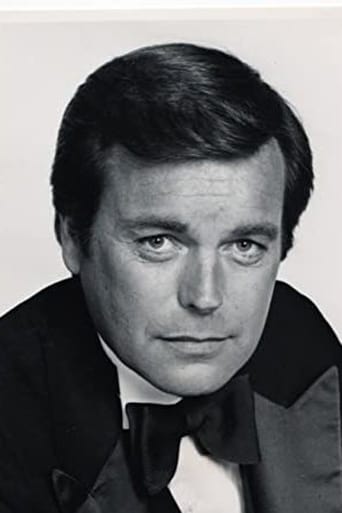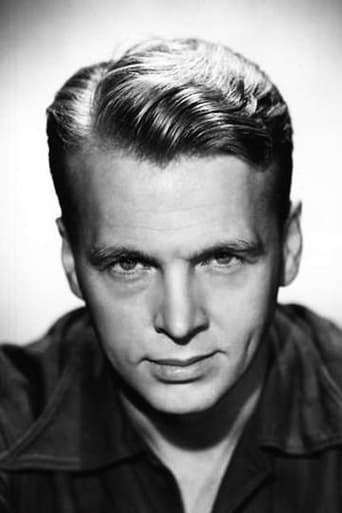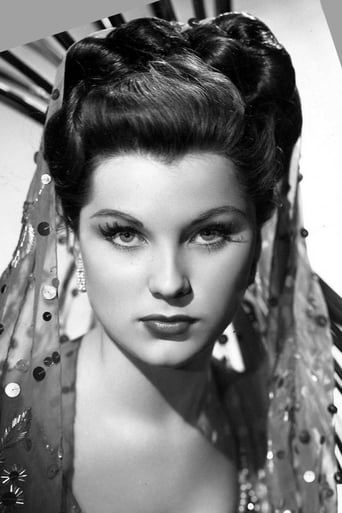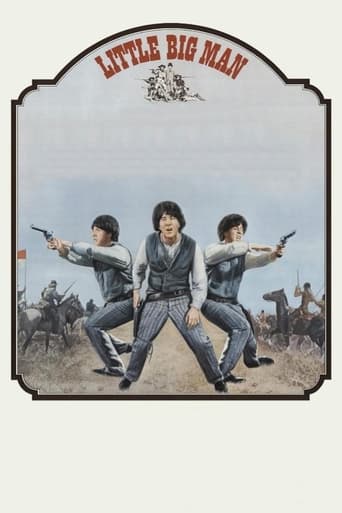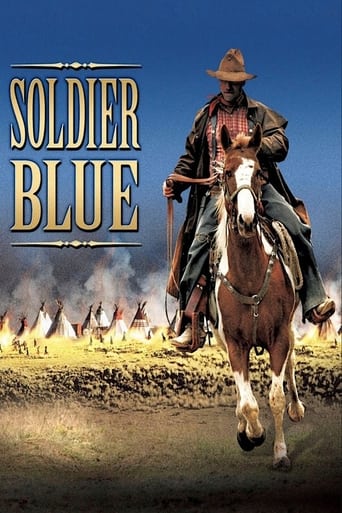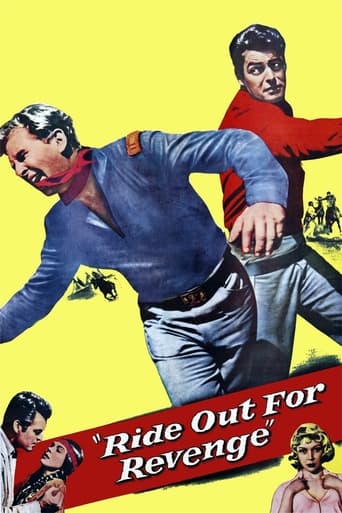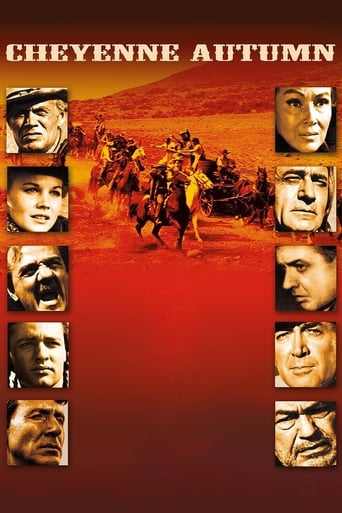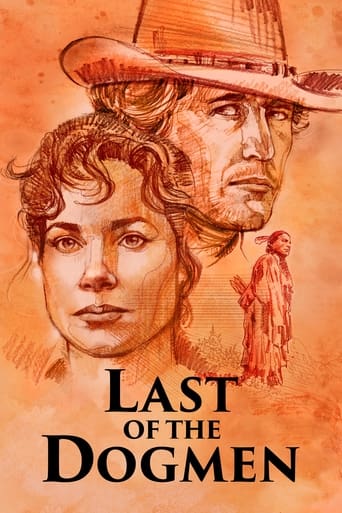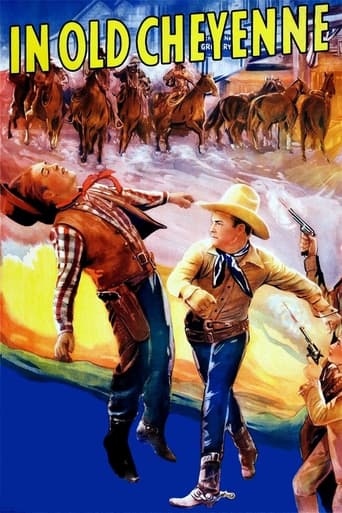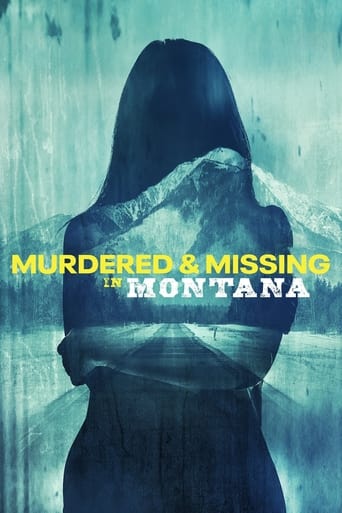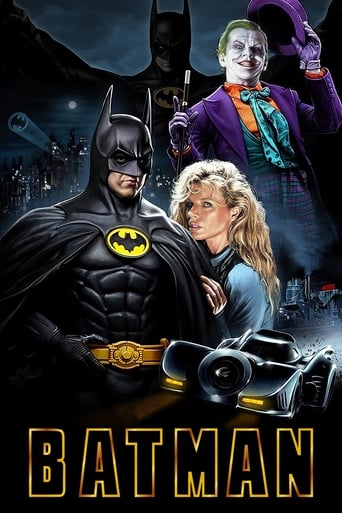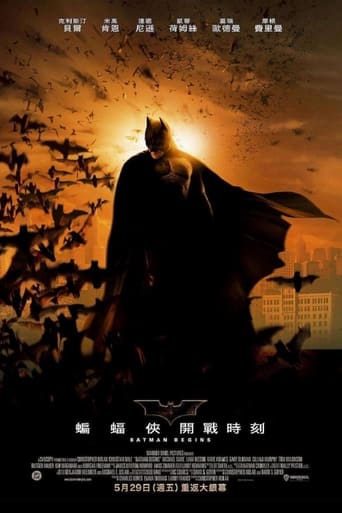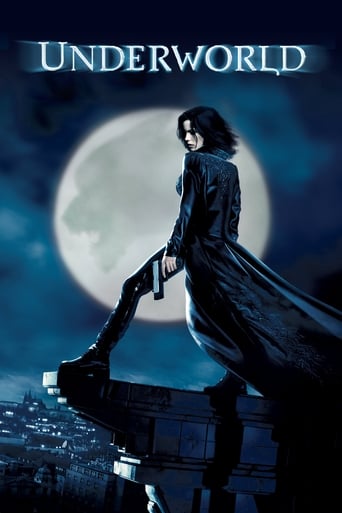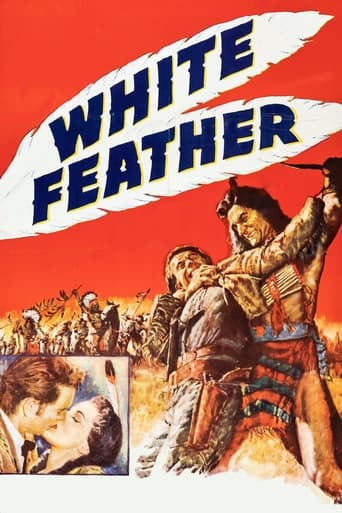
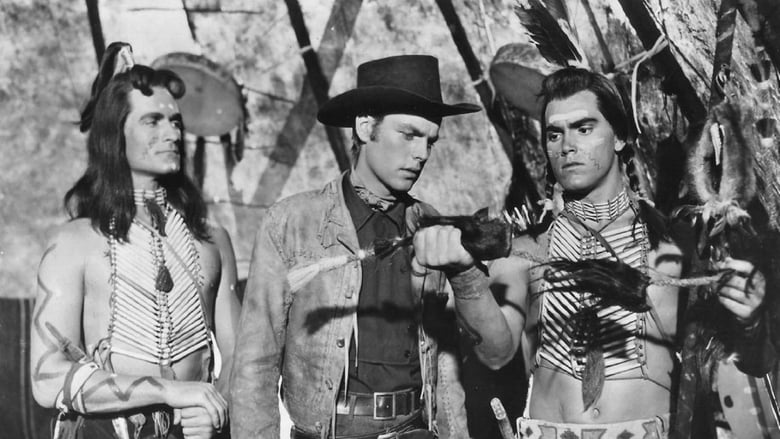
White Feather (1955)
The story of the peace mission from the US cavalry to the Cheyenne Indians in Wyoming during the 1870s. The mission is threatened when a civilian surveyor befriends the chief's son and falls for the chief's daughter.
Watch Trailer
Cast


Similar titles
Reviews
Powerful
Highly Overrated But Still Good
Film Perfection
It was OK. I don't see why everyone loves it so much. It wasn't very smart or deep or well-directed.
This movie is one of those weird "remake" movies they used to do ala "Rio Bravo"/"El Dorado", or "Support Your Local Sheriff/Support Your Local Gunfighter". In this case, "White Feather" is a loose remake of 1950's "Broken Arrow". Delmer Daves, who directed BA, wrote this screenplay and Debra Paget reprises her role as the most European looking Indian maiden of all time.Here's what I liked:This movie had a big budget and it shows in the recreation of the Indian villages. I have never seen such large representations of tribal villages. They are almost small cities. Unfortunately, they also seem phony and sterile.For once a Western leading man is having romantic relationships with women his own age!Positive Indian point of view theme is OK.That's it for positives.Hard to know where to start for negatives:As mentioned, a blatant remake of "Broken Arrow".Robert Wagner gives one of the worst leading man performances I've seen in a Western. And that hair style. Looks like he just walked off the set of "Jailhouse Rock". I finally understand why they had to use old guys like Wayne, Stewart, Randolph Scott, Gary Cooper etc. for leading men in the '50's. None of the young guys could act!!There's no heavy. This drains almost all the dramatic tension out of the story.All the other acting jobs are terrible. I didn't buy Jeffery Hunter for a second as an Indian warrior. It was hard to buy any of the Indians because they were all played by obviously Causcasian actors.Very little attempt at comic relief.Fundamental relationships of friendship between Little Dog and Josh and especially Appearing Day and Josh seemed awkward and implausible.Not one decent supporting acting job to salvage this mess.
This is one of a number of 1950s Westerns which attempted to redress the balance by painting a fairly sympathetic view of the American Indian; even so, to spice up proceedings, we get a couple of rebels (second lead Jeffrey Hunter among them) opposing the impending peace treaty offered by the white man. Incidentally, though inspired by a factual incident, the film's plot line basically mingles elements from two contemporary examples of the genre BROKEN ARROW (1950; whose director, Delmer Daves, contributed to the script of this one) and ARROWHEAD (1953). With this in mind, the film doesn't really bring anything new to the table but, made with consummate Hollywood professionalism, the result is undeniably entertaining nonetheless.Casting is adequate, too: apart from the afore-mentioned Hunter (though not exactly convincing as a redskin), we get Robert Wagner as an all-too-young Government agent hero who mediates between the two parties, Debra Paget (in a virtual reprise of her BROKEN ARROW role and who eventually defies her people by eloping with Wagner), John Lund as the experienced Cavalry officer in charge, Eduard Franz as Hunter's dignified chieftain father, Hugh O'Brian (as with Peter Graves in the same director's BENEATH THE 12-MILE REEF [1953], a viewing of which preceded this one, he's the heroine's brash but unloved intended), Virginia Leith as a more mature secondary love interest for Wagner, and Emile Meyer as her racist storekeeper father. By the way, I've just taped the first cinematic adaptation of Ira Levin's thrller A KISS BEFORE DYING (1956) off Cable TV which I noticed shares a remarkable number of cast and crew members with the title under review (not least its hunky stars)! Being a largely outdoor film and in order to supply the appropriate grandeur, Lucien Ballard's widescreen photography is rather frustratingly limited to long or medium shots which, when screened on a normal-sized TV set, unfortunately leads to a certain detachment on the viewer's part; by the way, in the accompanying poster gallery on the DVD, the fact that patrons would be watching a "Cinemascope" production was deemed a bigger draw than even the stars involved! The film culminates with an unusual sort of showdown as Hunter and O'Brian face an entire cavalry unit (apparently an Indian battle custom which explains the film's title) however, the duo's come-uppance sees the personal intervention of Franz, who's not pleased with their 'brave' gesture; this is then followed by a lengthy (and, I'd even say, unwarranted) scene in which Wagner meticulously prepares Hunter for burial.The Fox DVD includes quite a nice assortment of extras: these include a reproduction of the original pressbook (filled with amusingly irrelevant ballyhoo), a reasonably comprehensive photo gallery, and a number of trailers for the studio's other catalog entries in the genre (among them the desirable Victor Mature vehicle FURY AT FURNACE CREEK [1948] surprisingly narrated and carrying the personal endorsement of none other than Gregory Peck! and latterday black-and-white potboiler CONVICT STAGE [1965], which I'd never heard of myself and can't fathom why it was even deemed worthy of a DVD release).
In 1877 Wyoming, a government worker helps the United States Calvary in their quest to move the Cheyenne Indian tribe from the north-end of the state to the south; the Indian Chief--concerned about being on the losing end of an impending battle--agrees, but two young warriors oppose the move. Dusty western with a passive, sensitive side. The performances are variable, with Robert Wagner looking constipated (as usual), but Jeffrey Hunter doing a surprisingly forceful job as mercurial Little Dog (Hunter's scene amiably tossing knives with Wagner has a spirit that the rest of the film lacks); elsewhere, Debra Paget plays a lovestruck squaw (she's the palest-skinned Cheyenne ever to grace the screen!) and John Lund is a block of wood as a Colonel. The events depicted are allegedly based on fact, though one guesses this tenuous screenplay by Delmer Daves (of all people) and Leo Townsend runs far smoother than actual history might suggest. The "white feather" is the Indian's challenge to the white man, but it seems to me the horses involved get a far rougher treatment than either. ** from ****
"White Feather" was one of the first westerns to make good use of the wide screen Cinemascope panorama. Director Robert D. Webb uses all of the screen, filling it with bright vibrant color and plenty of action.The story centers around the efforts of the US Army in 1877 to negotiate treaties with the Indian Tribes to relocate them following the Indian wars which included Little Big Horn a year earlier. All have agreed except for the Cheyenne.Into all of this rides surveyor Josh Tanner (Robert Wagner) who is supposed to map out a site for a future town. There's gold in them thar hills, you see. Along the way, he finds the body of a miner. He reports to Colonel Lindsay (John Lund) and learns of the problems in getting the Cheyenne to agree to move. Tanner finds a room at Magruder's Store. He meets Ann Magruder (Virginia Leith) an an attraction forms. Tanner is told to stay away from her by her bigoted father (Emile Meyer).When riding with Ann, Tanner meets two young Cheyenne warriors, Little Dog (Jeffrey Hunter) and American Horse (Hugh O'Brian). Tanner earns the Indian's respect and is invited to their camp. There Tanner meets Little Dog's sister, Appearing Day (Debra Paget) and a romance develops. American Dog's father the Grand Chief Broken Hand (Eduard Franz) returns to the village and announces that the Cheyenne will sign the treaty and move south with the other tribes.Little Dog and American Horse defy the chief and decide to remain on their land and fight the Army alone. Meanwhile, Appearing Day, who had been promised to American Horse leaves the village and goes to be with Tanner. American Dog attacks Tanner but is subdued and jailed. Little Dog breaks him out killing two soldiers in the act. As the fort's entire compliment and the Cheyenne watch, Little Dog and American Horse launch their attack and.......................................The acting is uniformly good. The boyish Wagner carries off the lead role well, although he never manages to conduct that survey. Hunter and O'Brian are excellent as the two renegade Cheyenne. Lund has little to do as the Cavalry Colonel. Franz makes an authoritative Chief who puts the welfare of his own people above all else, including that of his family.Also in the cast are Noah Beery Jr. as Lt. Ferguson, Milburn Stone as the Indian Commissioner and Iron Eyes Cody as a Cheyenne Chief.You have to see this one in the wide screen format.


